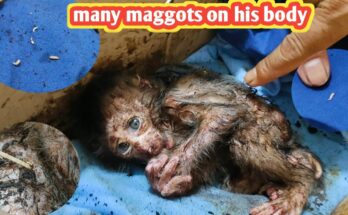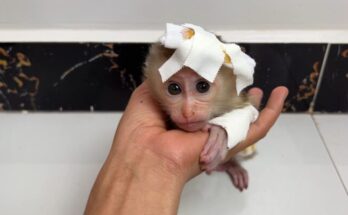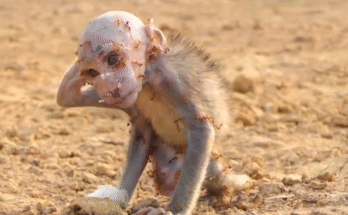At a local animal market known for its poor regulation, a heartbreaking scene unfolded: several newborn baby monkeys, some barely hours old, were found in filthy cages—premature, weak, and clinging desperately to life. Their eyes were sealed shut, their bodies trembling, and their tiny fingers grasping at nothing but cold wire and waste. Many had been taken from their mothers far too early, likely for the exotic pet trade.

Rescue workers described the conditions as “unbearable.” The air was thick with the stench of urine and feces, and flies swarmed around the enclosures. The premature babies were lying on damp, soiled bedding, their fragile skin red and raw. Without the warmth of their mothers or proper neonatal care, their chances of survival were slim.
“These babies were in crisis,” said one rescuer. “They were cold, filthy, and starving—clearly suffering and neglected.”
The rescue team immediately began cleaning the newborns using soft cloths and warm water, being careful not to damage their delicate skin. Each monkey was gently wrapped in sterile towels, and their tiny bodies were slowly warmed. Premature babies are especially vulnerable to hypothermia and infections, so every moment counted.
One of the infants, barely the size of a human hand, struggled to breathe. Rescuers administered oxygen and syringe-fed him a special formula designed for primate neonates. The work was painstaking and emotional—but slowly, the babies began to respond.
“These animals should never have been in a market, let alone in this state,” a volunteer said. “It’s sickening.”
The incident has renewed calls for stricter enforcement against illegal wildlife trade and better oversight of animal markets. For now, these baby monkeys are in safe hands—finally clean, warm, and receiving the care they so desperately need.


